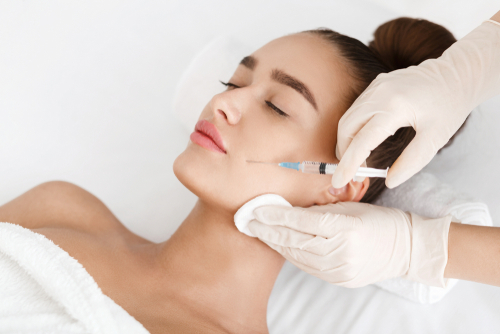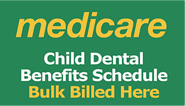- New Patient Special for $150
- Terms and Conditions Apply
- Learn More!

Recent research has identified that using Botox for bruxism can be effective. Bruxism, otherwise referred to as teeth grinding affects mostly children, but also 8% of all adults. Teeth grinding and sometimes jaw clenching happens primarily at night time, when the person suffering from the condition is asleep.
The true cause of teeth grinding is multifactorial and largely remains unknown, however some suggestions regarding the root of the problem have been made. One idea is that irregular brain signals lead to involuntary and forceful contraction of jaw muscles. Other hypotheses include that teeth grinding is inherited genetically, that it can be caused by stress and anxiety,. There are other suggestions that teeth grinding/clenching is associated with that it manifests due to an abnormal breathing habit, crooked or missing teeth. The effects of some drugs, including caffeine, may also play a role in teeth grinding. In children, teeth grinding may begin to materialise in response to pain or discomfort symptomatic of colds, ear infections, allergies and other health problems.
Teeth grinding can lead to teeth wearing down and becoming crooked or misshapen. A large percentage of people who suffer from teeth grinding are unaware of their condition until signs of damage to the teeth and/or other related signs are observed by a dentist during a check-up. Botox for bruxism has been used for many years, but it was not studied in a clinic setting until 2017. Examples of Botulinum Toxins include Botox, Dysport and Xeomin.
In 2017, a study was conducted on 22 patients who suffered from teeth grinding. The participants were initially assessed overnight to evaluate the severity of their condition. 13 participants received an injection of the botulinum toxin (Botox) through their cheeks into their chewing muscles. The remaining participants received a placebo. Four to eight weeks later, when the effects of Botox are most pronounced, the participants were observed overnight again to assess any improvement. [1]
None of the placebo-receiving participants demonstrated any improvement, however almost 50% of the patients who received a dose of botulinum toxin were identified as ‘much improved’ or ‘very much improved.’
Botulinum toxin blocks chemical signals from nerves that instruct muscles to contract. Botox injections essentially cause muscles to temporarily relax and become unable to contract.
Botulinum toxins for bruxism was considered successful during the trial and more successful than other available alternatives. Competing alternatives including behavioral and drug treatments haven’t been very successful in the small handful of clinic trials they have been studied in. Do-it-yourself methods, like avoiding caffeine and chewing gum, remain mostly unsuccessful.
If you suffer headaches or other pain due to teeth grinding, botulinum toxin injection might be an effective symptomatic treatment to provide temporary relief and for to assist as an adjunct help to treat your condition. At Central Brunswick Dental Centre we provide Botox for teeth grinding. It is however advisable to investigate and potentially treat the underlying cause to prevent/improve bruxism before applying a botulinum toxin solution. Contact our friendly team via our contact page to schedule an appointment to assess if botulinum toxin injection is the right type of treatment for you
Central Brunswick Dental Centre is open for business between 9:00am and 5:00pm Monday to Friday. Call us on 07 3216 1100 during business hours to make an appointment.
[1] Asutay, F., Atalay, Y., Asutay, H., & Acar, A. H. (2017). The Evaluation of the Clinical Effects of Botulinum Toxin on Nocturnal Bruxism. Pain research & management, 2017, 6264146. https://doi.org/10.1155/2017/






Fill in the form and our friendly team will be in touch with you monumentarily
Sed ut perspiciatis unde omnis iste natus error sit voluptatem accusantium dolor emquesit voluptatem laudantiu.
Dr Jacky is extremely knowledgeable around teeth and gum health ! Extremely professional and makes you feel comfortable and makes you laugh . Lauren, the dental nurse, is also all above! I'm so happy ... Read More
Highly recommended Dr.Jacky. He is very caring and skillful during the filling process since I have been very nervous with “dentist”. After the work done and the next day I don’t feel any pain o... Read More
I have been going here for several years and so now does my family of all ages. We all use the different dentists and are all happy. I use Dr Jacky who is very professional, honest, caring and most ... Read More
BEST DENTIST IN BRISBANE! Had two fillings today, Dr Jacky is so attention to detail , very kind and generous! Will definitely look after my teeth 🦷 🦷
Simply the best and most comfortable procedures I’ve ever had. I always feel welcome and relaxed in the hands of Bryce and Lauren in this cooly designed , simple yet highly professional clinic. Alwa... Read More
